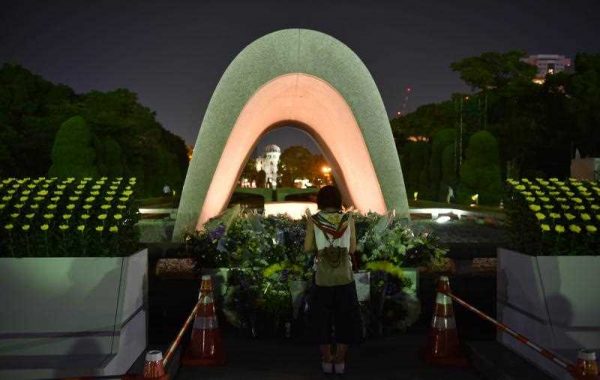An obstinate hurdle to realising this hope which is often overlooked is that Japan’s ‘history problem’ — a mix of politics, identity and nationalism in East Asia, brewing actively since the late 1990s — is also about personal identity. We can better understand the emotional import of the upcoming commemoration on 15 August by recognising that for many Japanese it is about defining the humiliating legacy of our fathers and grandfathers, their mistakes and failures.
War memory is ultimately family memory and the questions are personal: what did our fathers and grandfathers do in the war? Did they act honourably at their time of reckoning? Do we portray them as innocent or guilty? Do we protect or incriminate our own family members?
We may be in a better position to anticipate the forthcoming politics of war responsibility at the 70th anniversary by taking account of the family legacies of Japan’s elite politicians.
Some would like to see Prime Minister Shinzo Abe renew Japan’s apology in a definitive statement of wrongdoing as former prime minister Tomiichi Murayama did on the 50th anniversary in 1995. But this would be a revolutionary statement for Abe. He is the grandson of post-war prime minister Nobusuke Kishi who masterminded the growth of colonial Manchuria’s economy and served as munitions minister in the wartime Tojo cabinet. It is this family loyalty that Kevin Rafferty has, in a recent Japan Times article, called one of Abe’s ‘demons’.
For Abe to reaffirm Murayama’s statement would be tantamount to redefining his grandfather’s colonial and wartime achievements as dreadful wrongs. Is it conceivable that Abe would be prepared to declare, as Murayama did, that his grandfather pursued a ‘mistaken national policy, advanced along the road to war, only to ensnare the Japanese people in a fateful crisis, and, through its colonial rule and aggression, caused tremendous damage and suffering to the people of many countries, particularly to those of Asian nations’? Such a statement by Abe would be truly ground-breaking.
Others would like to see Abe renew Japan’s vow for peace, in a definitive statement ‘never again’ to engage in war. This would also be a revolutionary statement for Abe. It was also Kishi, as prime minister in 1960, who cemented Japan’s security alliance with the United States. This allows the US to project its military power across Asia through its forward deployment strategy and the maintenance of strategic bases in Japan. For Abe, vowing to pursue a pacifist future would be tantamount to repudiating this grand design for Japan’s regional power. He sees the East Asia region as a dangerous neighbourhood and is now railroading new national security laws through parliament, based on a unilateral ‘reinterpretation’ of Japan’s pacifist constitution.
But it would be a mistake to see Abe’s statements as a complete representation of Japanese national sentiments. The ‘history problem’ is larger and more complicated than the legacy of elite families who dominated wartime Japan. Ordinary Japanese — the rank and file in wartime — have also inherited war memories and, not surprisingly, they diverge a great deal from those of elite families.
Many remember the devastation that the war wreaked, especially in 1944–45, and have passed those memories to their children and grandchildren. Still others remember the harm that the Japanese military inflicted in Asia and attempt to atone in their own ways. These memories are at the root of Japan’s longstanding antimilitarist sentiments and defence of the ‘peace constitution’. It is these children and grandchildren who are taking to the streets to resist Abe’s legislative manoeuvring.
With all the attention surrounding Abe’s anticipated 70th anniversary speech in August, it would be easy to lose sight of the broad plurality of sentiments and opinions that make up Japan’s attitude toward its past. The challenge going forward is to communicate this broader picture of war memory within Japanese society to its neighbours.
Akiko Hashimoto is author of The Long Defeat: Cultural Trauma, Memory, and Identity in Japan, Oxford University Press, 2015. She has taught cultural, comparative, global sociology at the University of Pittsburgh for 25 years. She is also a Faculty Fellow at Yale University’s Center for Cultural Sociology, and Visiting Professor at Portland State University.

